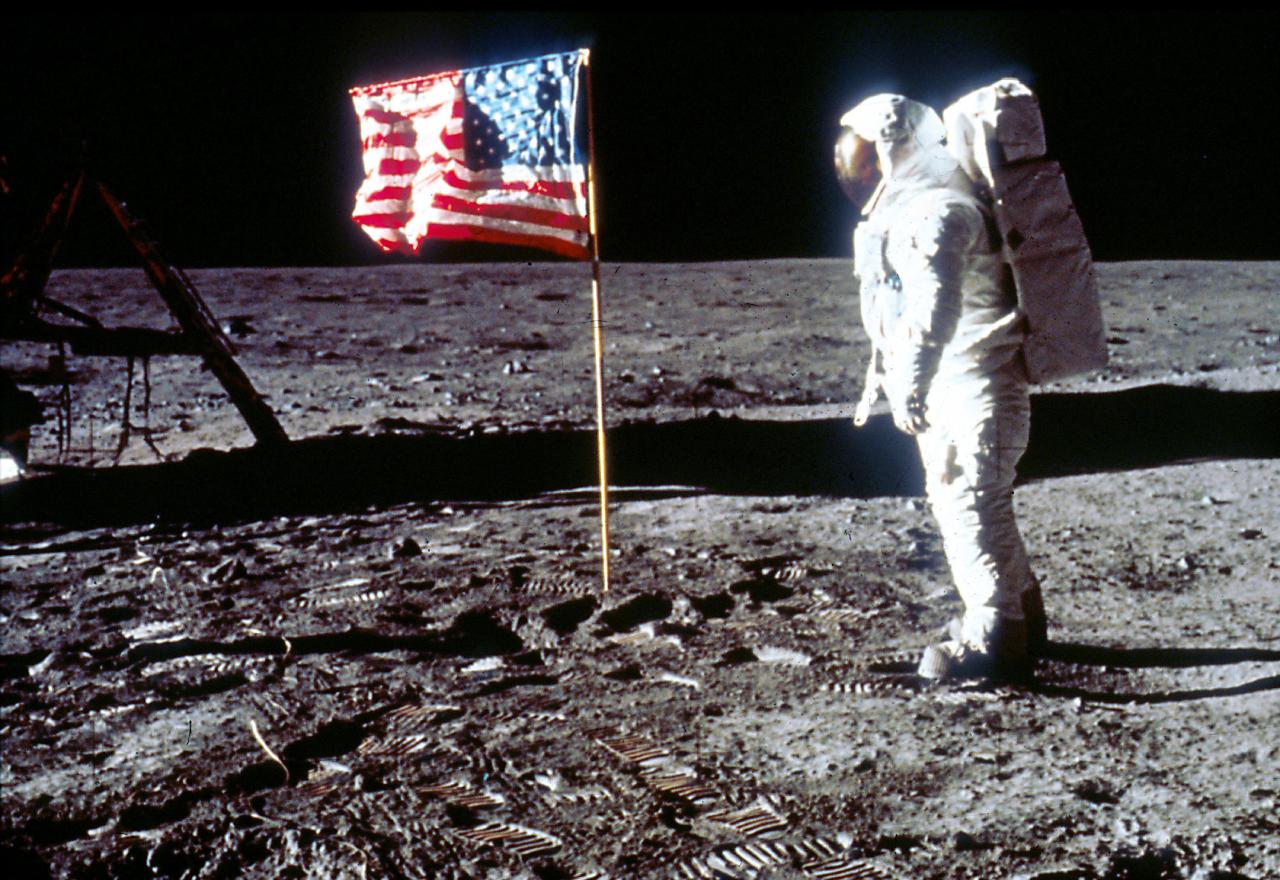Space a universal asset, not private property

The race to Space began when US astronaut Buzz Aldrin and Neil Armstrong landed on the moon (Photo credit: NASA)
Earlier this month, Roscosmos, the Russian space agency, announced that it would carry Japanese billionaire Yusaku Maezawa and his aide on December 8 on a 12-day trip aboard the International Space Station, which is jointly owned and operated by Russia, the United States, Japan, Canada and the European Union. The ISS is perhaps the only symbol of the multilateral cooperation in space exploration.
The ISS has been operating for over 20 years and has allowed the entire mankind to benefit from a whole volume of research that has resulted from this unique model of how the global community can benefit in outer space exploration.
Unfortunately, it is the only such programme and there are currently no signs of any replication of this model in any meaningful manner. The last two decades have seen many other nations launch their own space exploration projects, each more ambitious than the other and highly competitive with the perceived rivals. The list keeps on growing as more nations develop inhouse capacity or buy their way into space exploration. Two notable nations that have developed significant space exploration capacity are Asian giants and fierce rivals, China and India.
Both the nations have their own programmes to manned missions to the moon and much beyond. In fact, both have already sent probes to Mars and now are preparing for sending their astronauts in the space, on their own.
On the other side of the world, the United States is now aggressively working towards sending another manned mission to the Moon, with a deadline of 2024. NASA has invited like-minded nations and allies to join the project and so far 8 have signed up, including the UAE, Canada, Australia and Japan. Incidentally, neither Russia, nor China or even India figure on the partner list.
Having successfully launched manned flights in 2013, when 3 Chinese astronauts spent 15 days in space, working in a Chinese space lab, China is now setting its sights higher. It has recently launched the core component of a permanent Chinese space station, pretty much like the ISS, except that it will be fully and solely controlled by China. The country also wants to send a manned mission to the Moon and beyond, though that is likely only in the next decade.
India has also its own manned programmes lined up. It hopes to send Indian astronauts on its own Gaganyaan for a week-long mission. Though initially, it was slotted for 2022, it may be delayed due to the coronavirus pandemic.
The competition in space will no longer be only between nations as a number of American companies, notably Tesla’s maverick boss, Elon Musk, and fellow billionaire Jeff Bezos of Amazon are fighting a very public battle over space exploration. Bezos’ space exploration firm Blue Origin recently took NASA to court over its decision to choose Musk’s SpaceX for its manned lunar mission. There are at least a couple of other private firms in the US with their own space exploration programme, not to forget British billionaire Richard Branson’s Virgin Galactic.
For most players, the rush to space is powered by several factors, none of them for common good of the humanity or simply driven by the love of science. One is pride and oneupmanship as is evident between Bezos-Musk clash or the competition between Russia-US and India-China.
Another factor is far more serious and worrying. In the long-term, but not decades away, several nations and private operators, notably the US, China, Russia and even India, plan to set up permanently manned stations in the outer space or even on the Moon, which will serve as a base for further exploration of the space.
If these plans had been limited to space exploration and science, then perhaps even these competing programmes could have been welcome. However, for the superpowers space has become a new frontier for rivalry. Just like several nations have carved up the Oceans and the Antarctic between themselves and are exploiting it or planning to exploit it for minerals and metals, they have their sights set on the Moon, the Mars and beyond, to exploit and even claim ownership over parts where they may be the first ones to reach.
These trends and ambitions are absolutely no different from the colonial ‘exploration’ of the world when European powers sent their explorers to go and ‘discover’ new worlds. We all know what these explorations resulted in and how even almost a century after the end of colonialism from most parts of the world, the wounds caused by severe exploitation over several centuries are fresh and the colonised nations remain impacted even today.
Space, like the Earth, is a common property of the entire humanity, and perhaps other life forms, if they exist. By allowing a few nations or billionaires to carve the space or exploit the wealth of other planets for their own benefit would be a crime far worse than colonialism. It is time that that the global community, led perhaps by the United Nations, woke up to the threat that is building up rapidly and addressed it appropriately.
Space cannot be allowed to become a phenomenon of ‘finders-keepers’ or where a country or private company simply put their ownership claims on any bits that they like. Space exploration has to be for the common good and the sooner the world wake up to it, the better.









